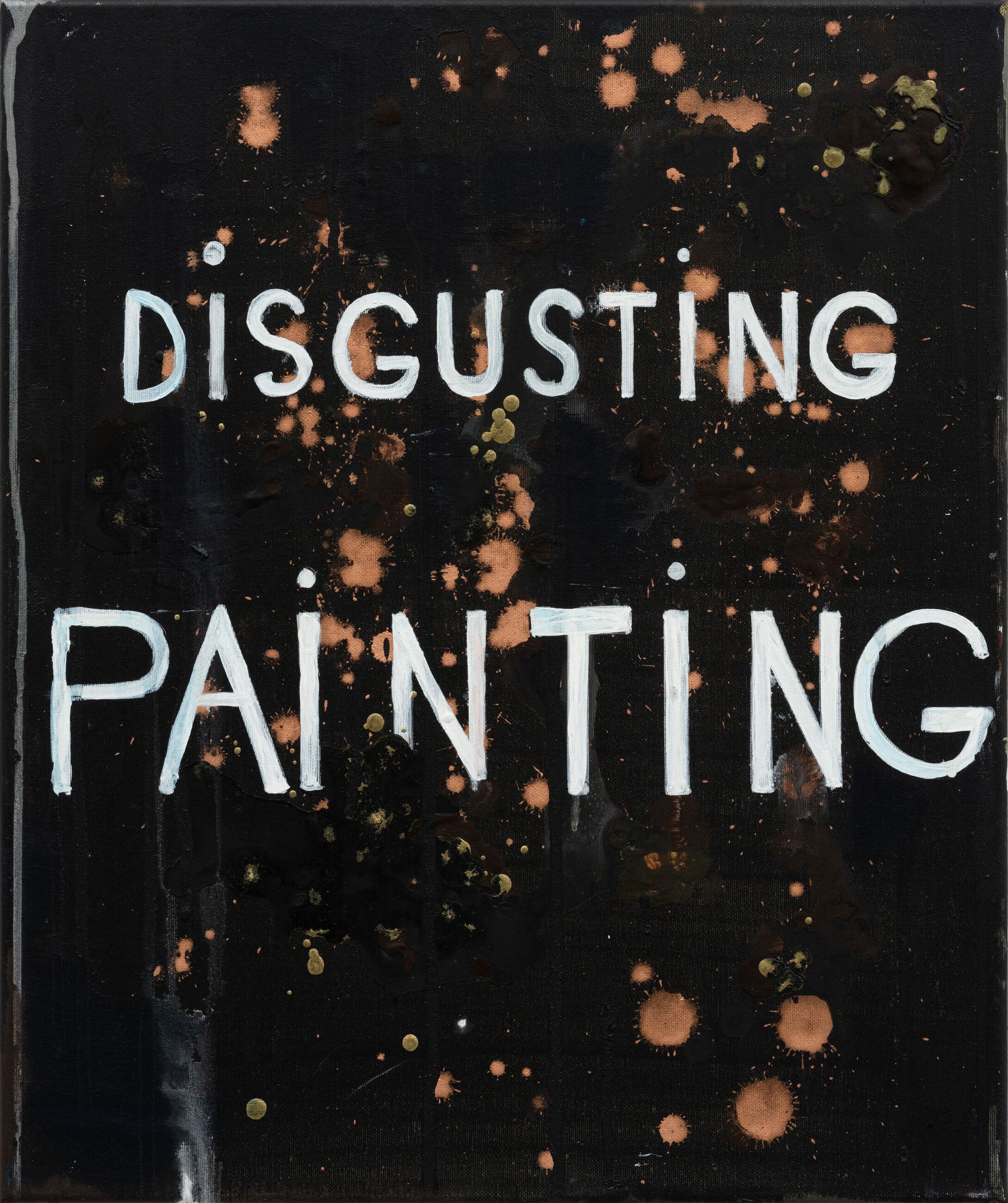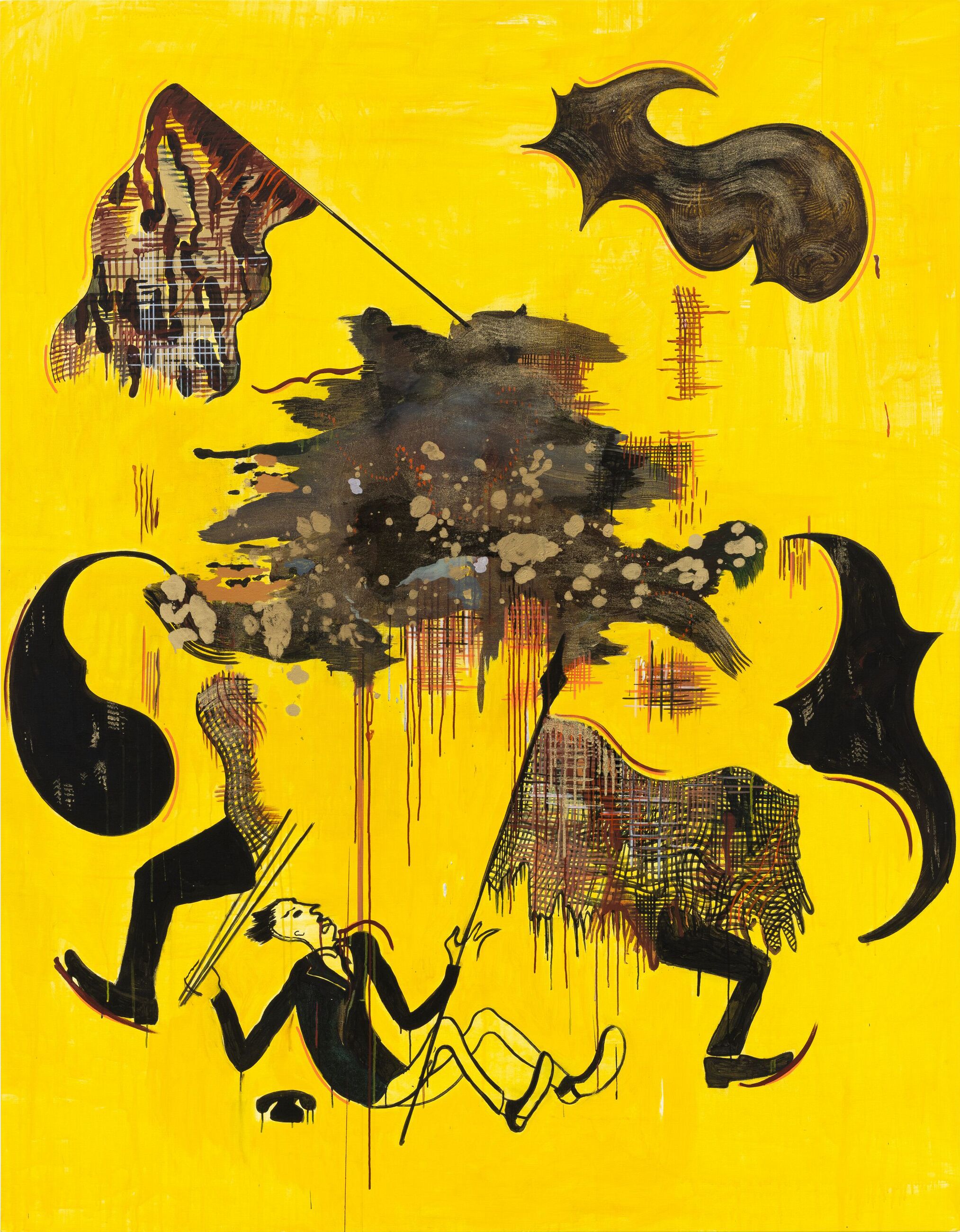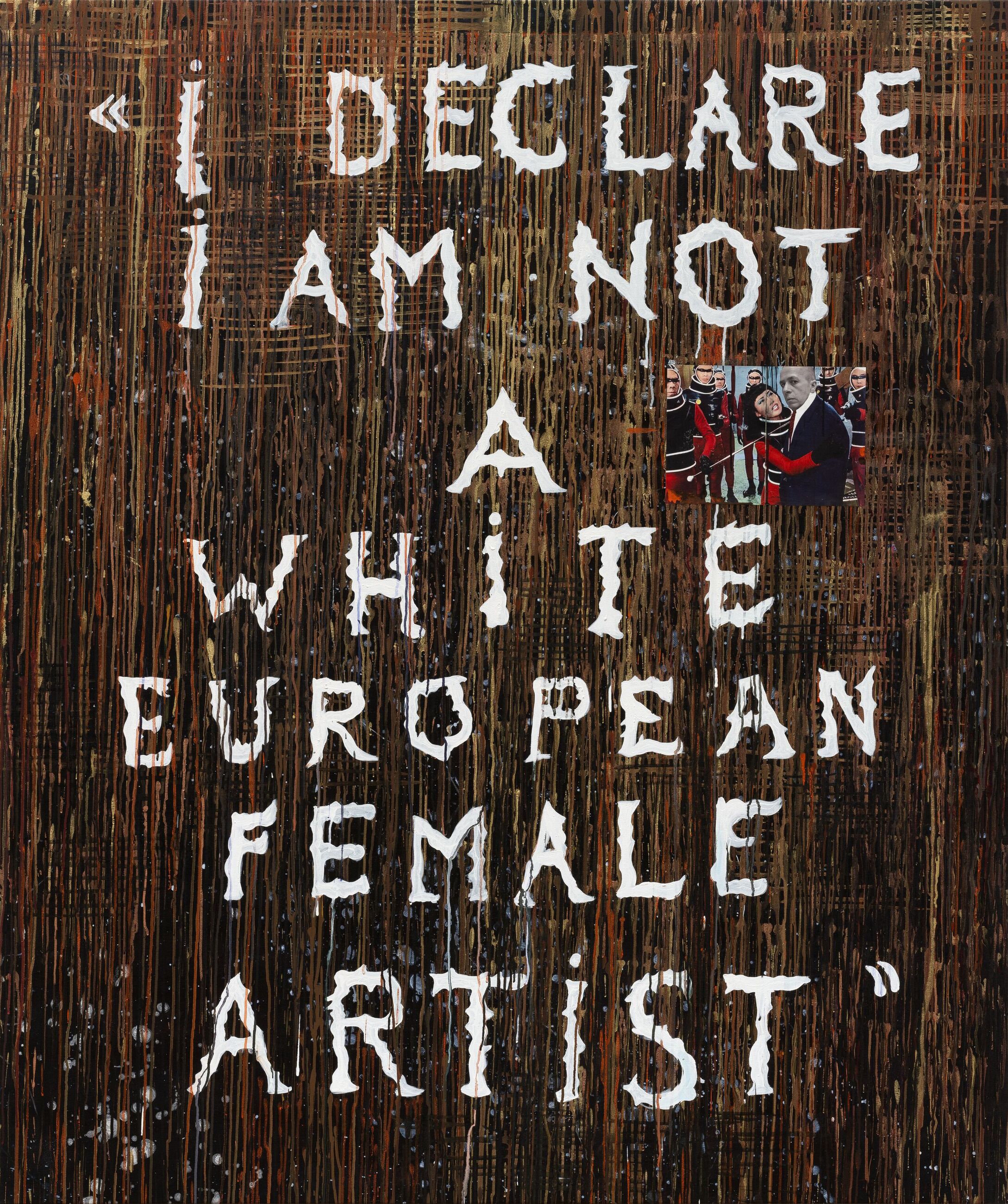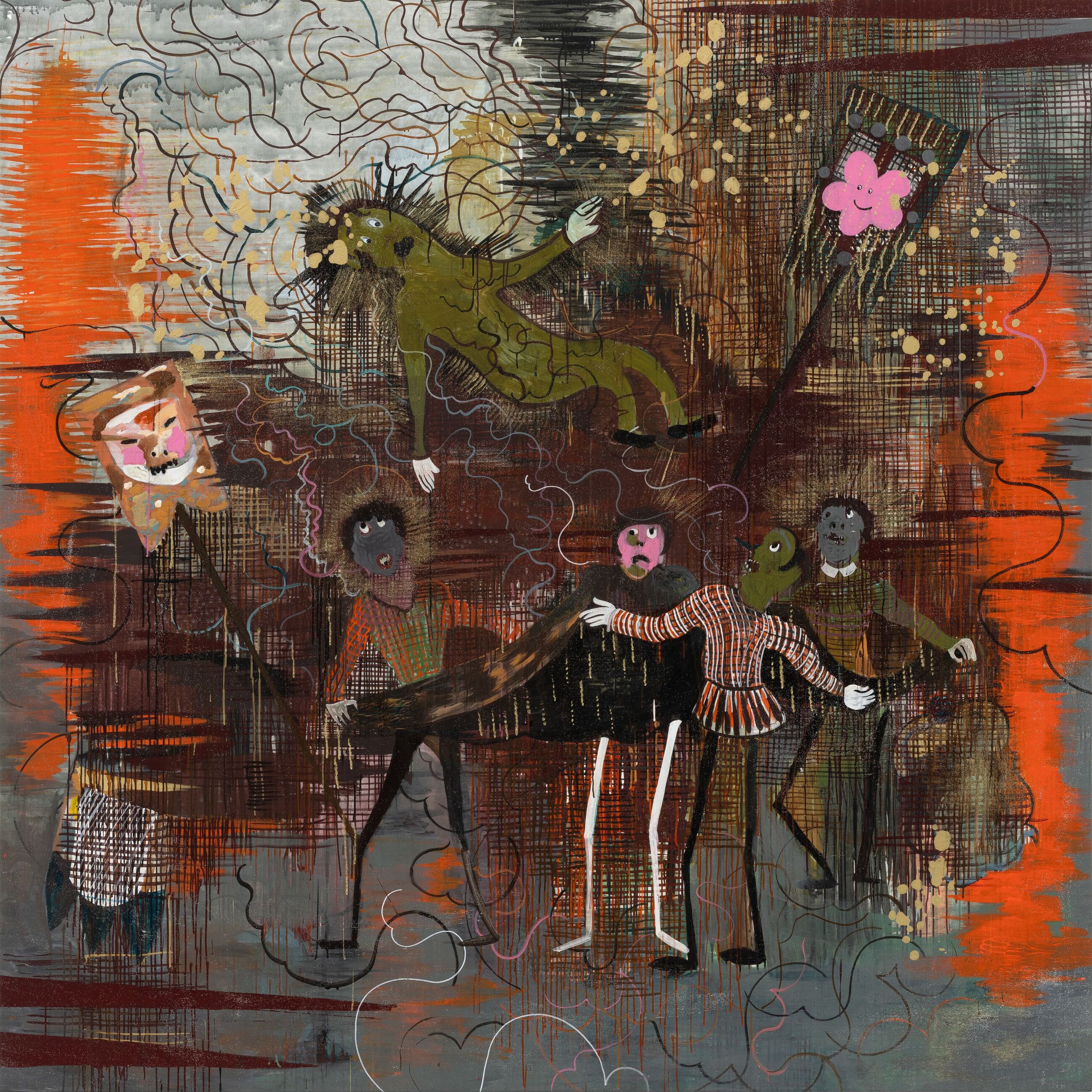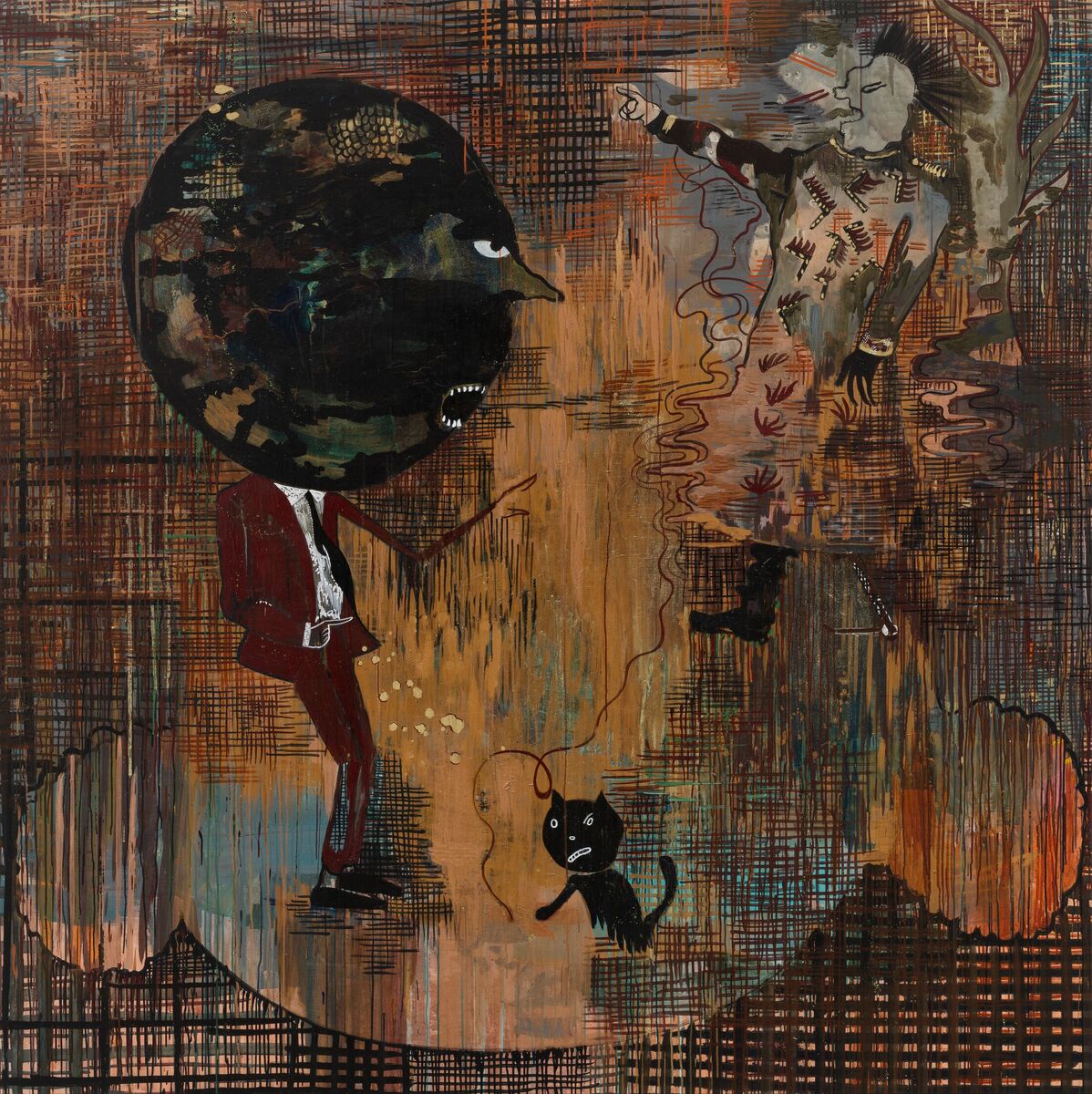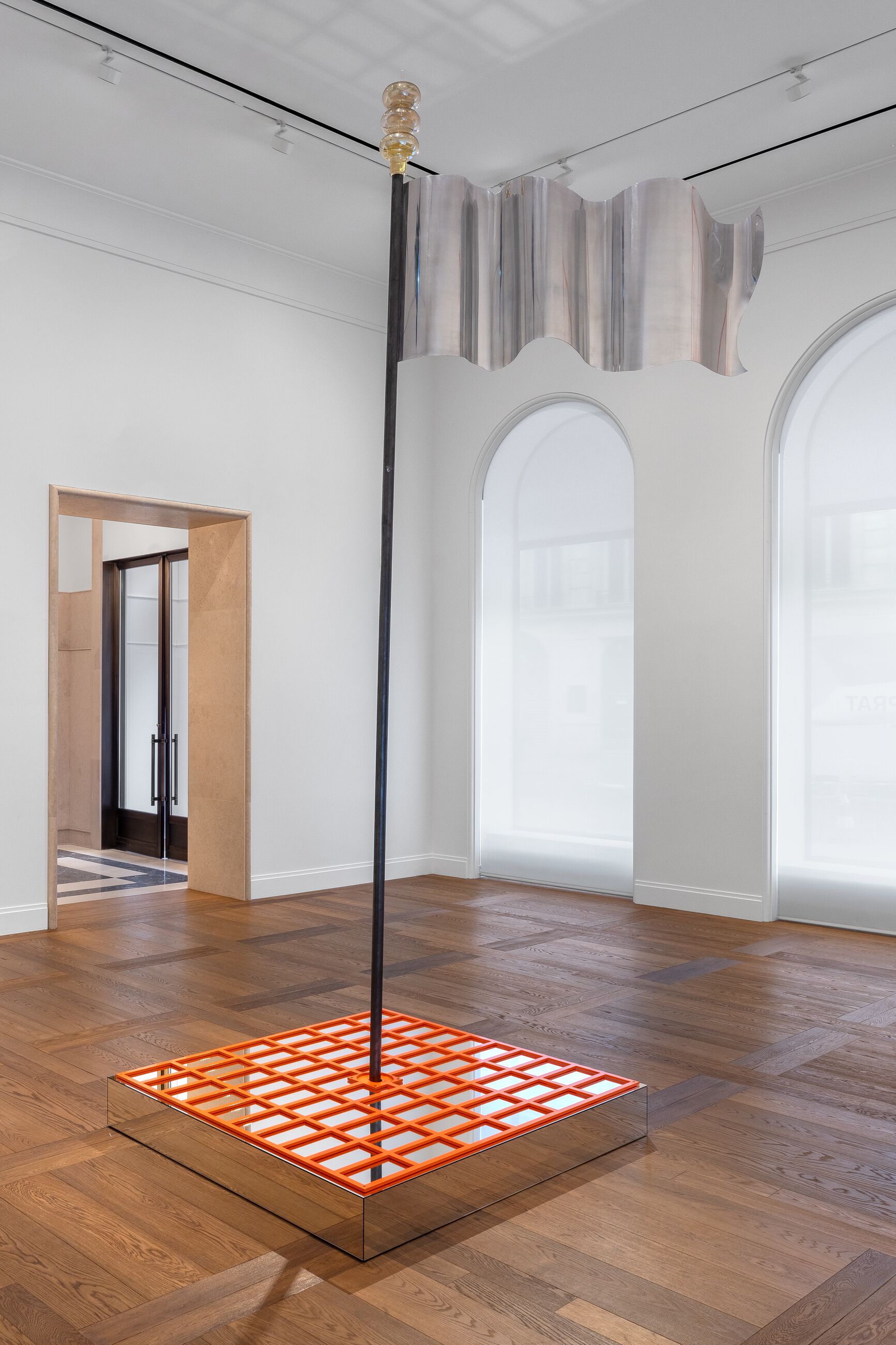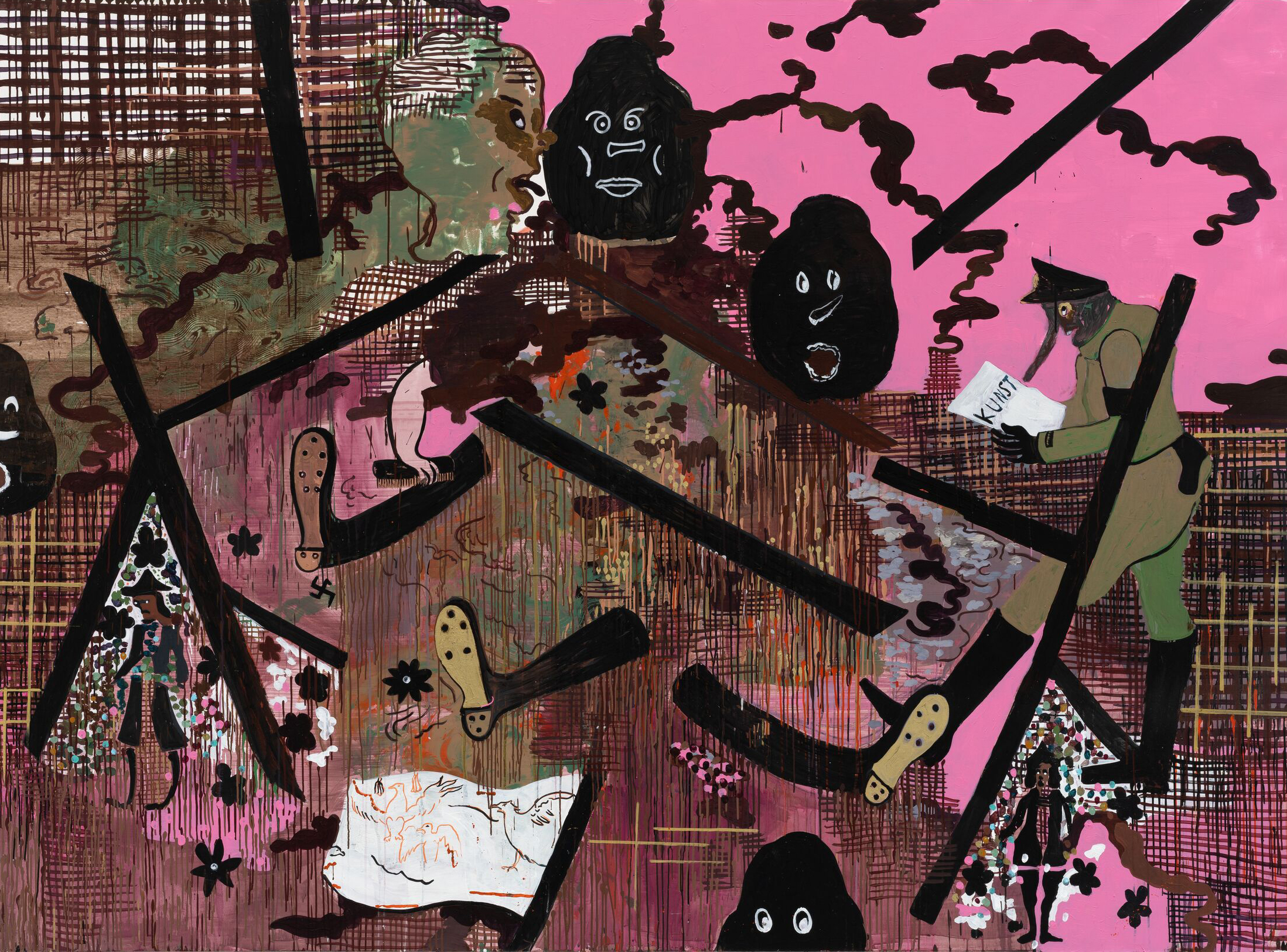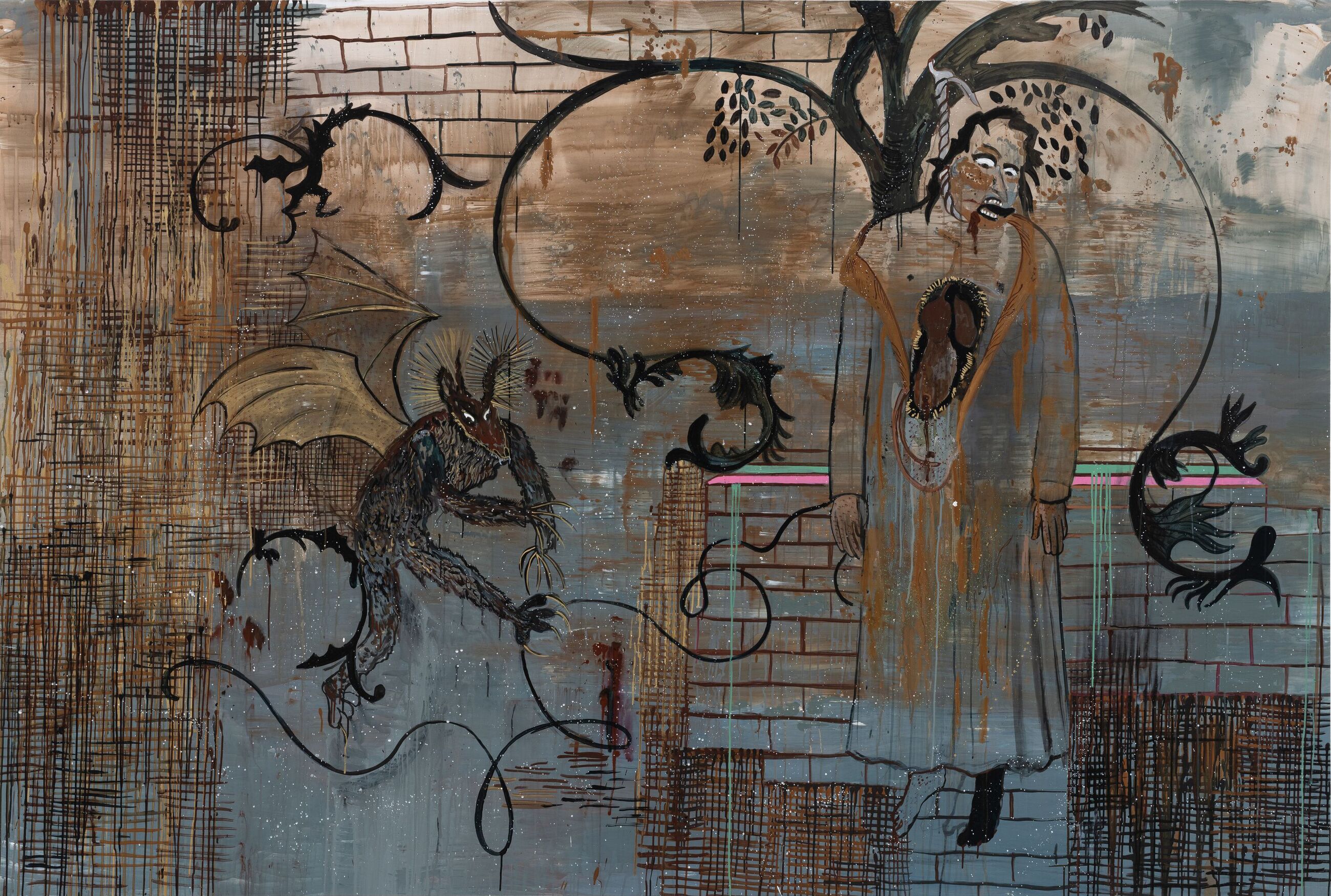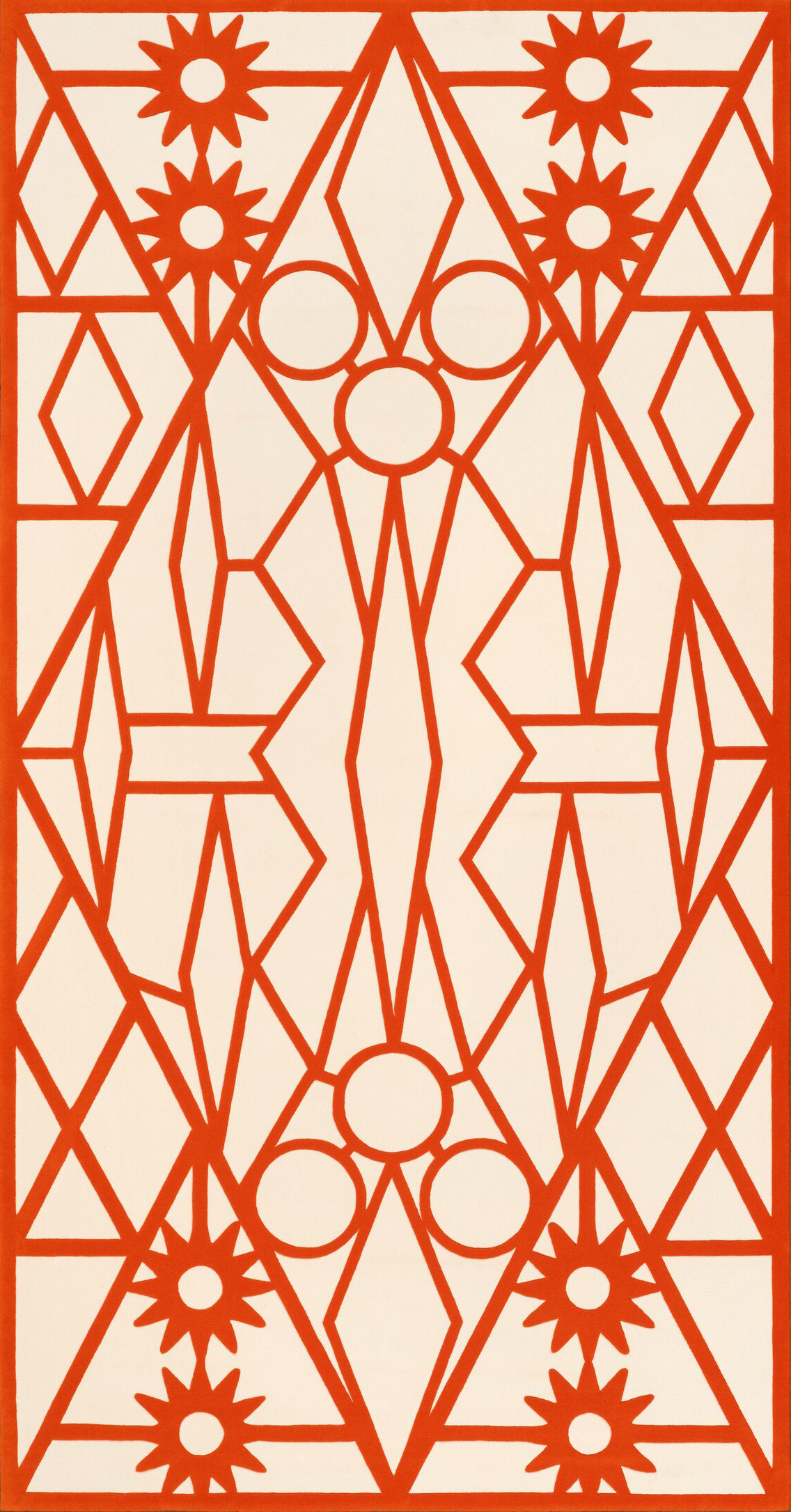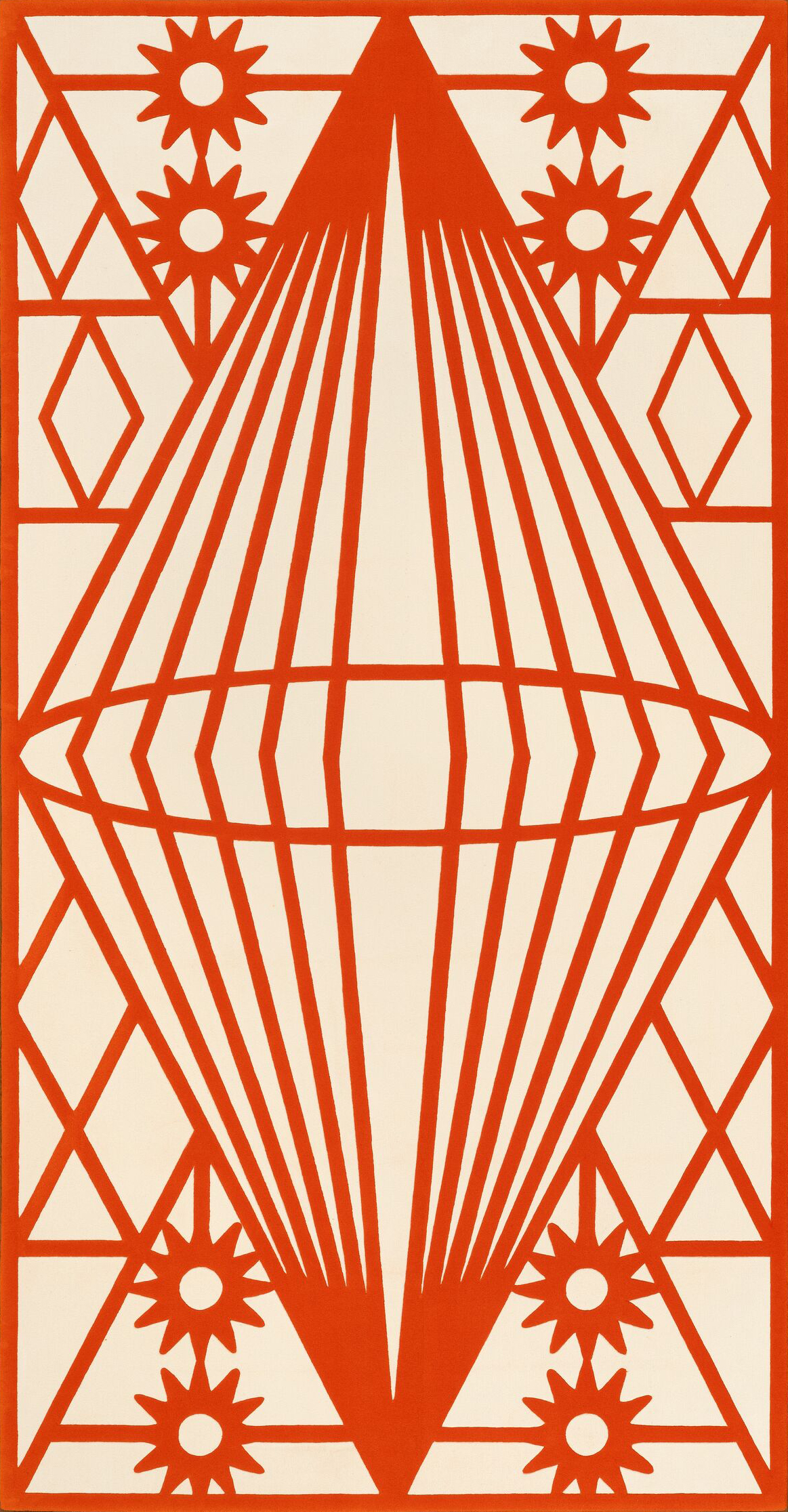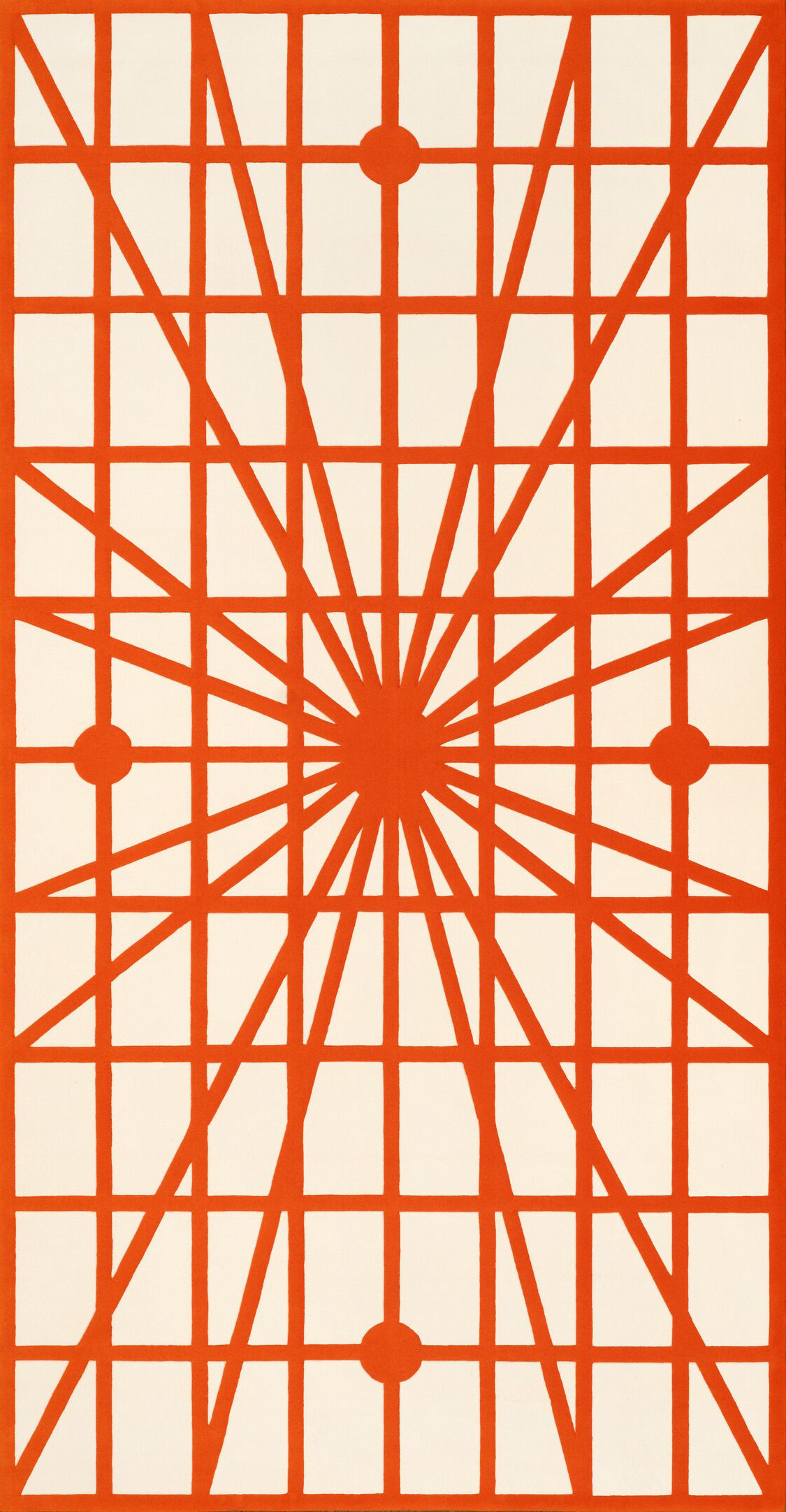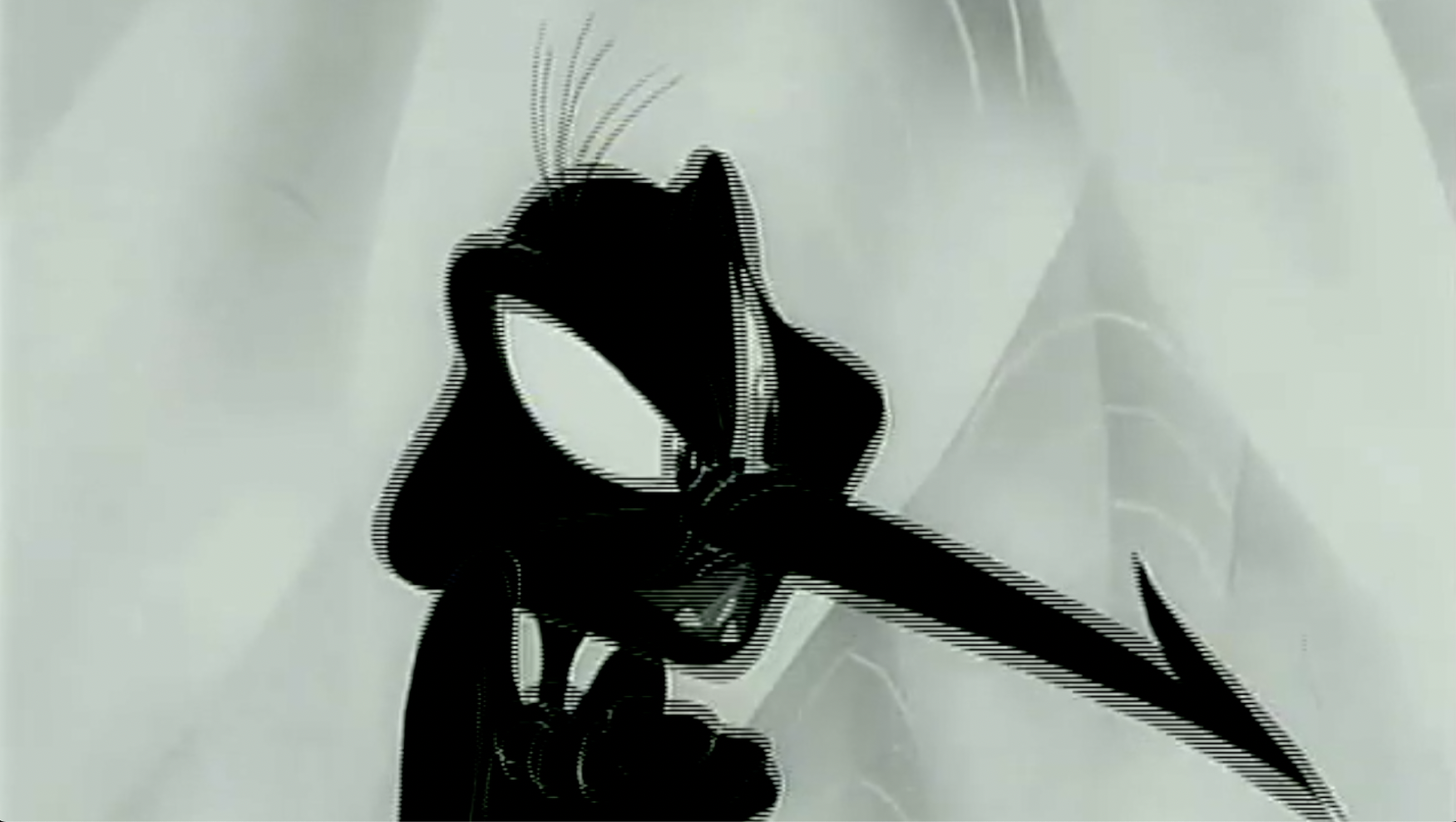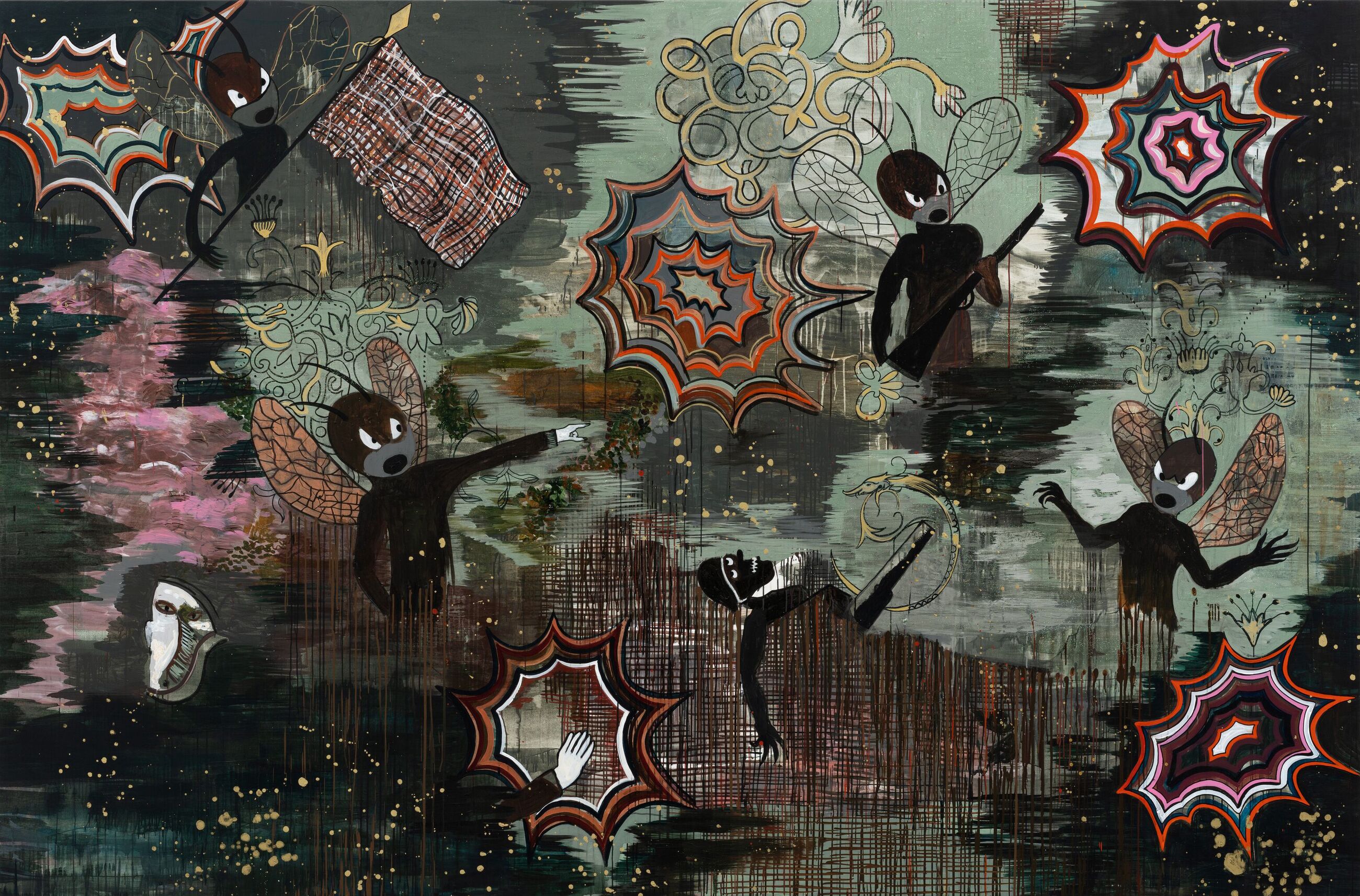
Hélène Delprat
MONSTER SOUP
20 January – 16 March 2024
Paris
‘I like things that are rugged, in discord, a bit monstrous or extravagant.’
—Hélène Delprat
Explore the exhibition
Hélène Delprat’s first exhibition with Hauser & Wirth, following the announcement of joint representation with Galerie Cristophe Gaillard, is now open in Paris. Organized with Olivier Renaud-Clément, the exhibition displays a selection of new paintings, sculpture, video and installation works across both floors of the gallery. Over the past four decades, Delprat’s multifaceted practice has engaged the human condition as its focus, exploring life and death in an oeuvre that spans various mediums. After finding success for her distinctively primitive style of figurative painting between 1985 and 1995, following her residency at the prestigious Villa Medici in Rome, Delprat turned her focus to video, theater, interviews, installations and projects for radio, all whilst continuing to paint.
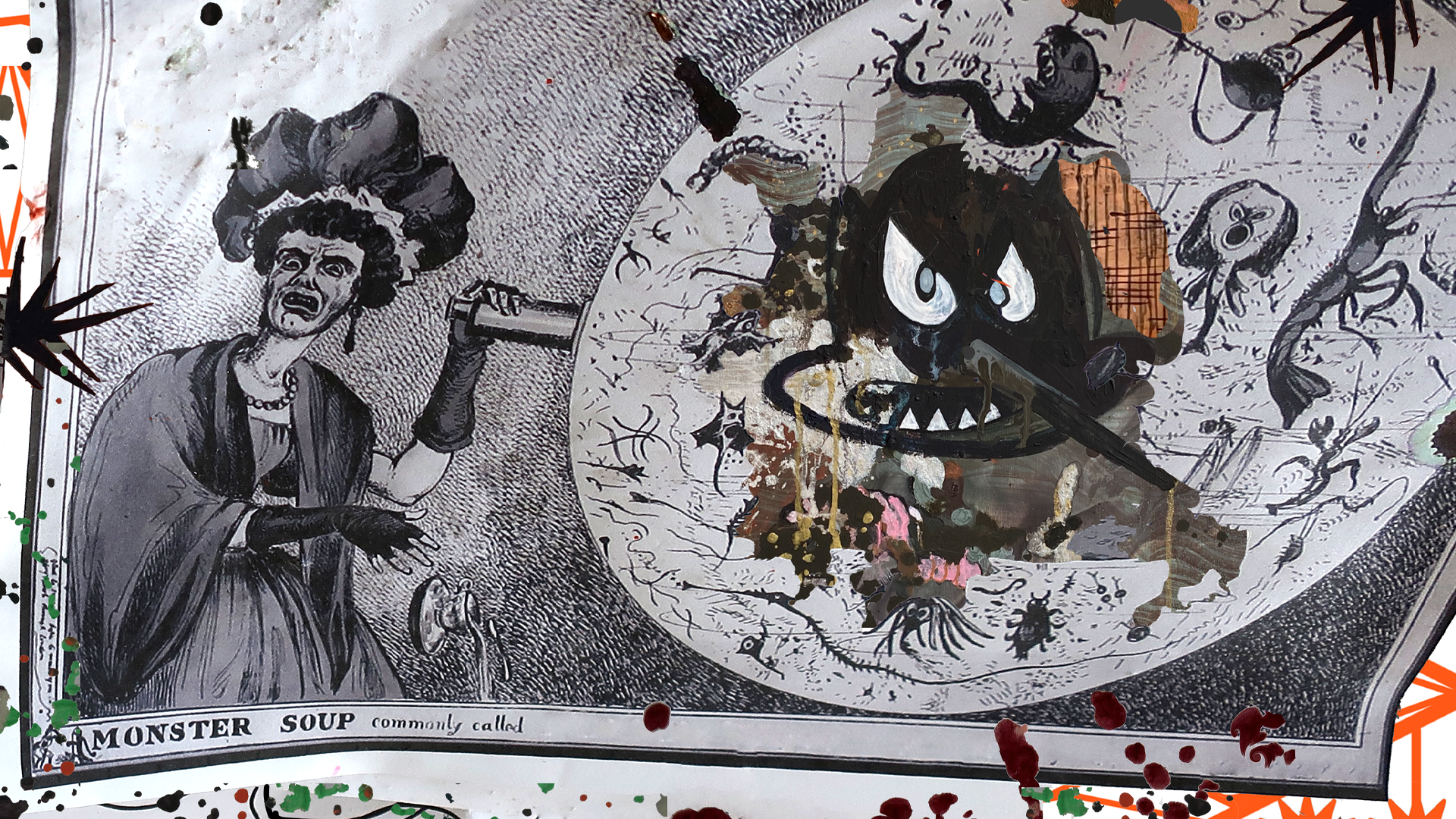
Since the late aughts, the artist’s painting practice has been shaped by an encyclopaedic research process compiling a remarkable archive of sources. Delprat’s works, together, comprise a sprawling constellation of references to literature, film, radio, philosophy, internet databases, recorded histories and art history. The title of this exhibition, ‘MONSTER SOUP,’ reflects this multidimensional approach by referencing a variety of sources from popular culture. The poster for the exhibition, created by Delprat, reflects this syncretism: the image, taken from a British 1820s etching depicting a woman in horror at the monstrous contents of a magnified drop of Thames water, is interspersed with Delprat’s painted characters.
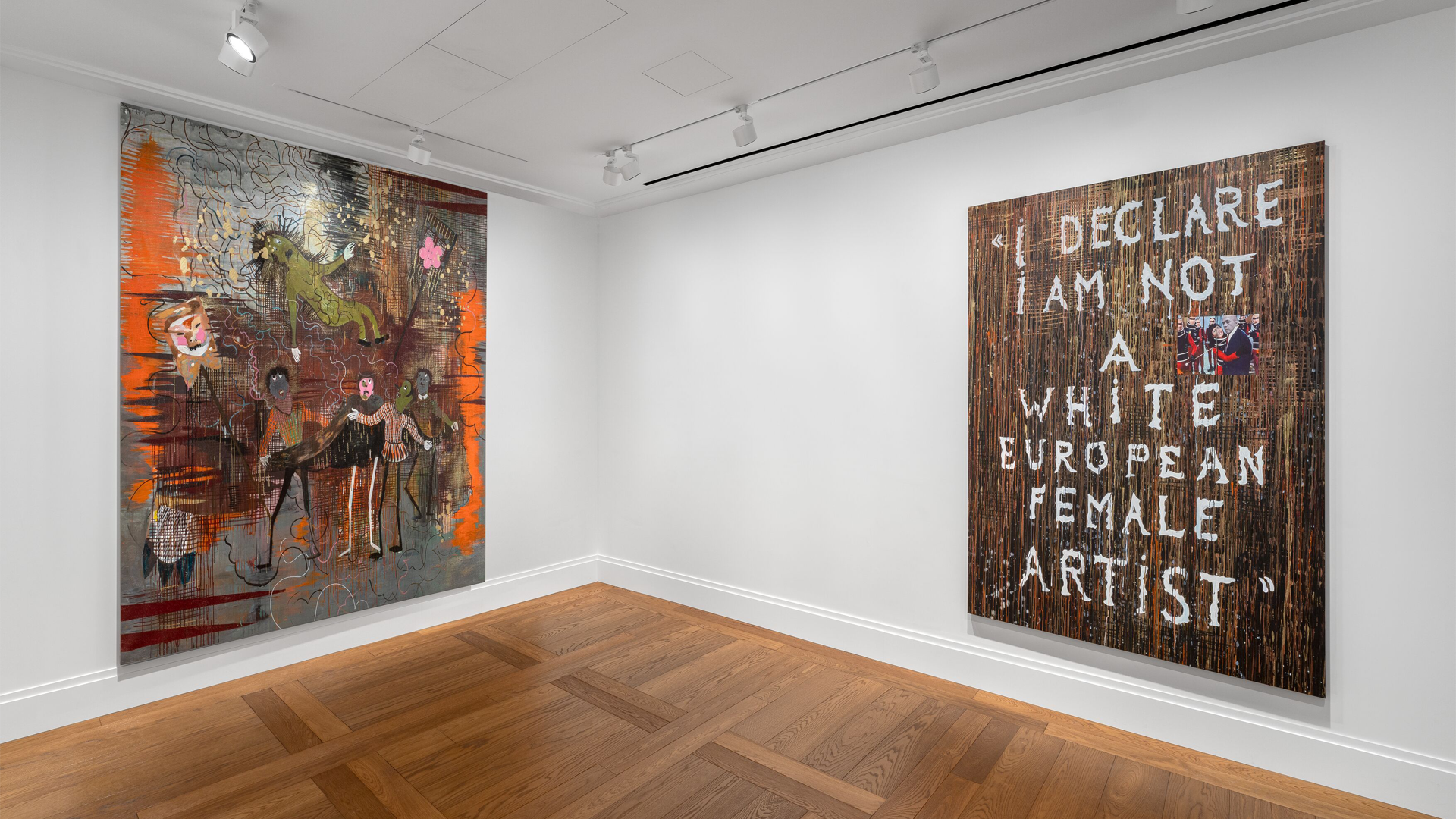
Likened to an iconologist, she distils eclectic sources of inspiration into an expansive inventory—a world both fortuitous and deliberate, beautiful and grotesque, where themes of memory, identity, recording and legacy coalesce to remind us that the past is a construction and the present is fleeting. ‘Intellectually, I start from everything I see’ she says, ‘… there is no real prep work, except all this reading, all these curiosities, the newspapers I flick through, the programmes I listen to and all the photos that I take or cut out. The preparation is simply what I am living.’
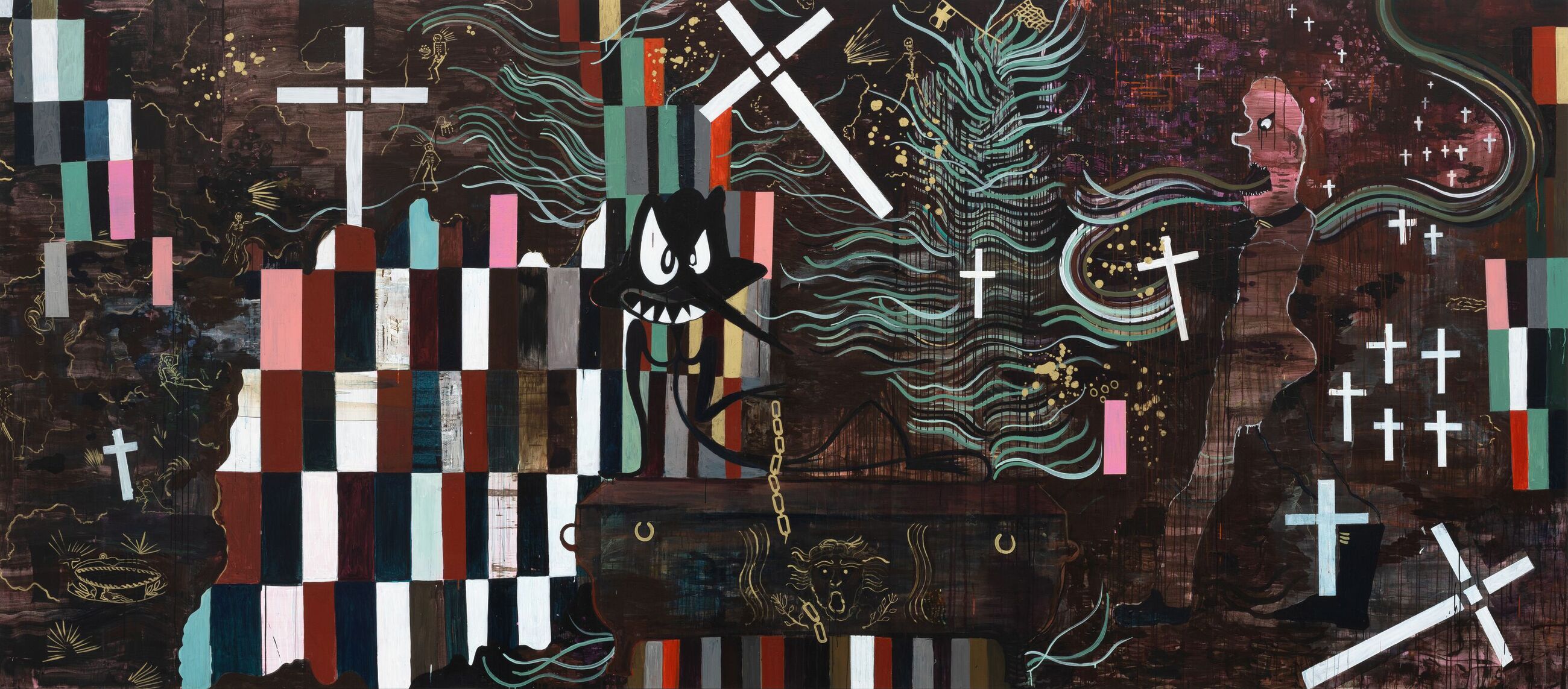
J’accuse
2023
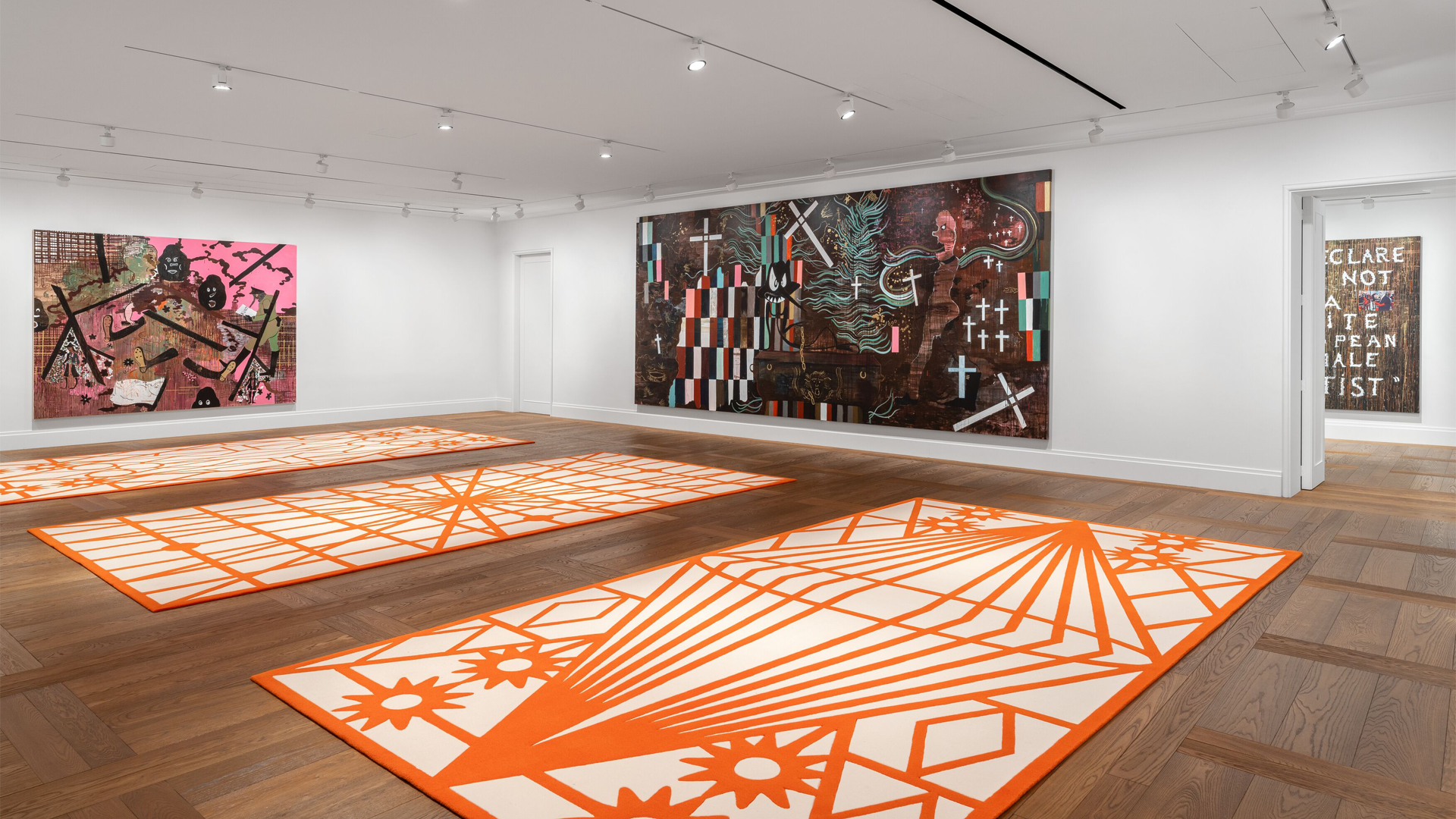
Many of the new works in this exhibition, particularly the paintings, are closely linked to the concept of ‘serio ludere’—a term coined in the Renaissance, meaning ‘to play seriously,’ where tragic imagery and allusions to death are approached with a flair for comedy and the absurd. Delprat’s work is full of allusions that evoke Renaissance culture, a period profoundly marked by encyclopaedism and curiosity, paradoxes and the uncanny, capriccio and burlesque, satire and comedy.
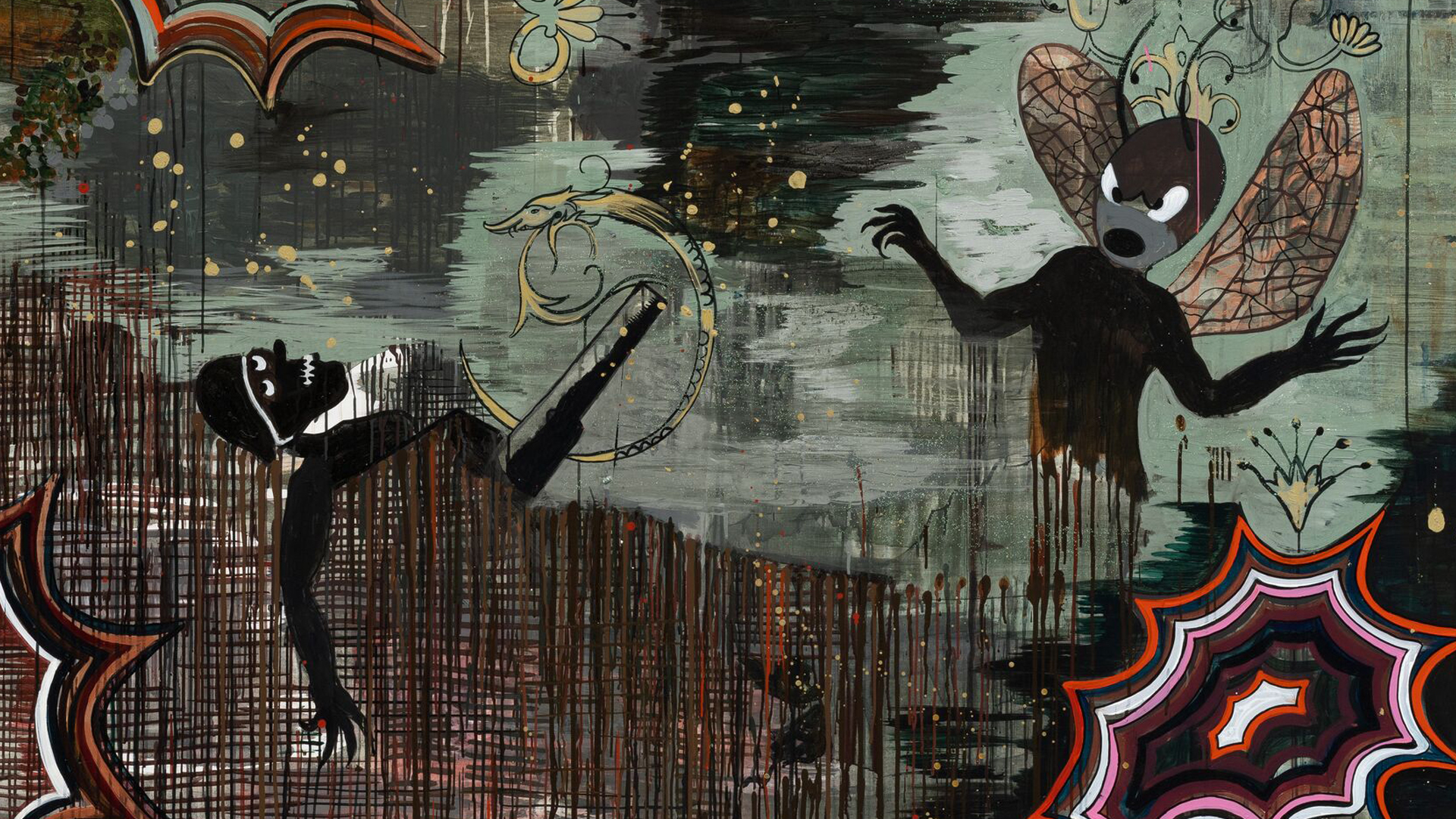
It is this prevailing characteristic of presenting comedy alongside a multitude of artistic, literary and philosophical references that counterbalances the presence of dark and sinister symbology in her work. Layers of abstract textures where semi-hidden images of phantasmagorical forms, such as ghouls or anthropomorphized moths, coexist are exemplified in works such as ‘Peinture – catastrophe’ (2023), composed of pigments binding acrylic and glitter on canvas, a technique frequently employed by Delprat.
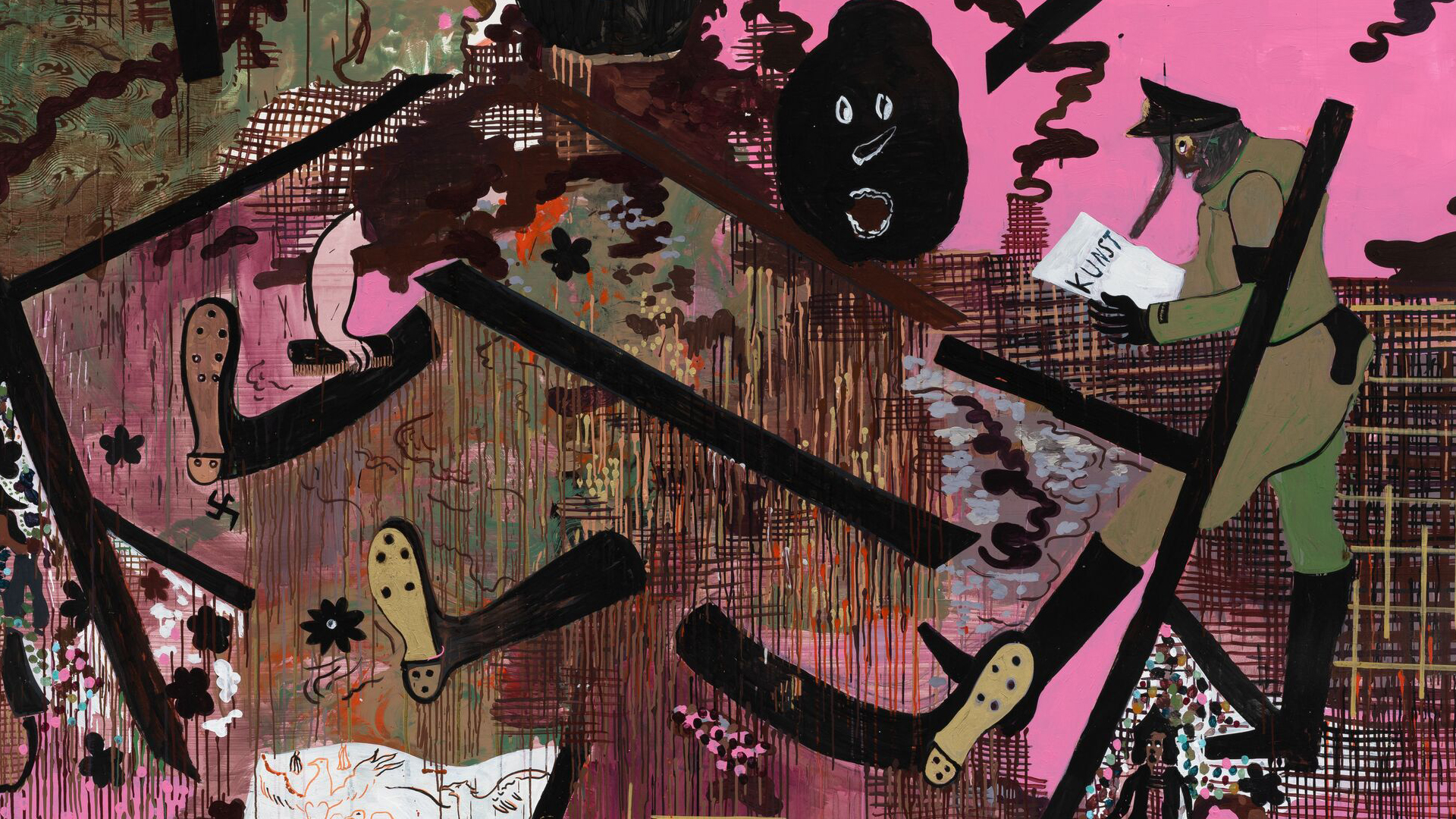
Creating a space where fictional or documentary elements intermingle, Delprat’s multi-layered paintings reveal an anachronistic framework. Her elusive characters and objects eschew context, resisting a single organized narrative. Depictions and images of war are often utilised and satirized in Delprat’s paintings. This is exemplified in ‘Il n’y a plus rien à faire’ (2023) which portrays Nazi soldiers and floating army boots, inspired by cartoons by French caricaturist and illustrator Jean Sennep, juxtaposed with distorted faces from propaganda cartoons. The recurring imagery of flags in Delprat’s work is also used to allude to war and used as a metaphor for the act of painting as a battle against time. These flags are seen floating in her paintings, held by her uncanny characters or in the four-metre sculpture ‘Drapeau (flag)’ (2023), made from steel and blown glass.
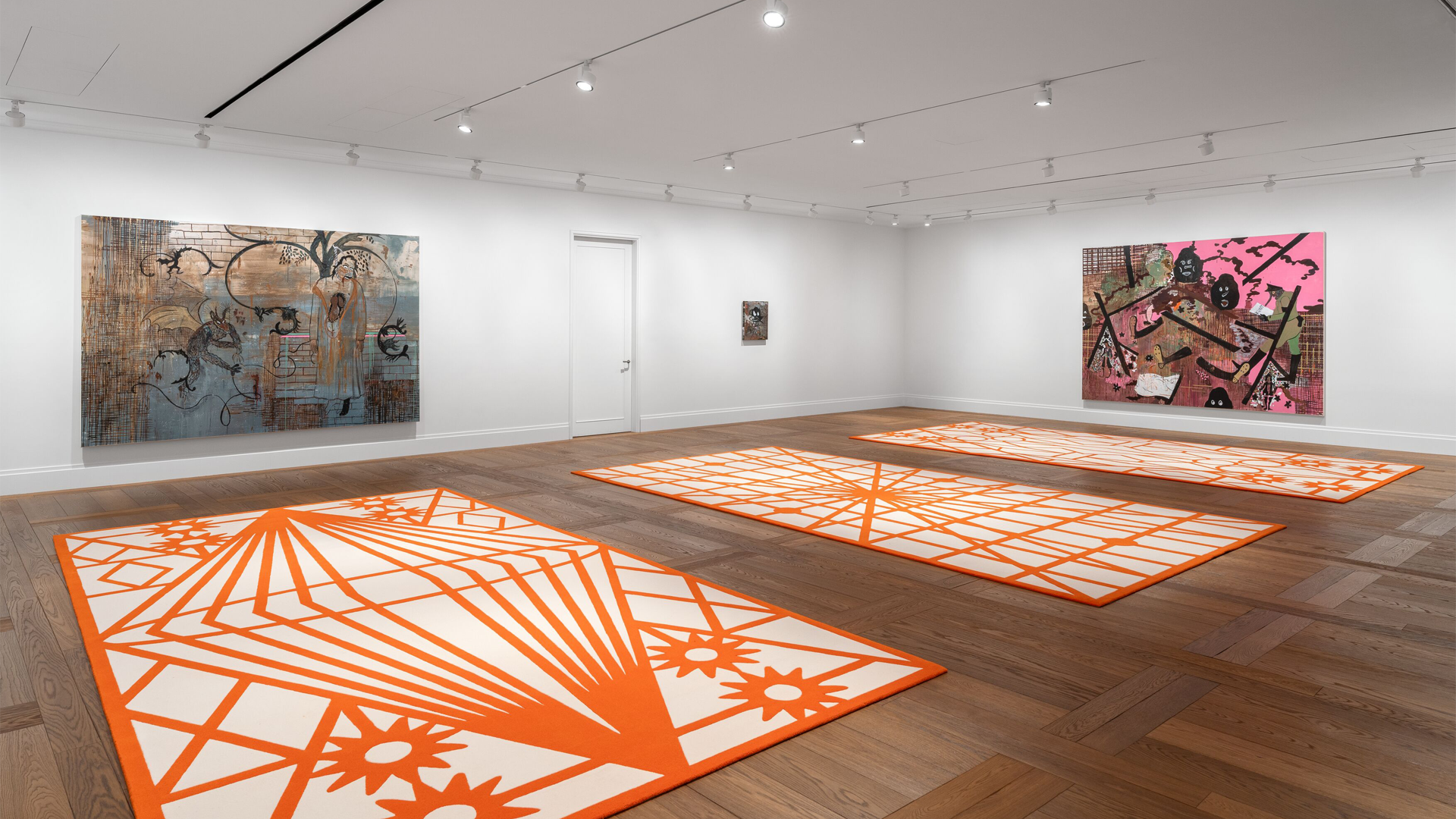
A new series of carpets made by Delprat, installed on the first floor, are covered in graphic patterns resembling the ornamental coverings of shop fronts used to protect from bombings in Paris during the First World War, employed to further evoke the spectacle of war. Similar imagery evoking tragedy and death appears in ‘Judas’ (2023), a painting on paper stretched over canvas which shows a figure hanging from a noose, his body pouring with entrails, alongside a threatening winged creature, taking inspiration from a painting by Giovanni Canavesio at the Chapelle Notre Dame des Fontaines in Paris.
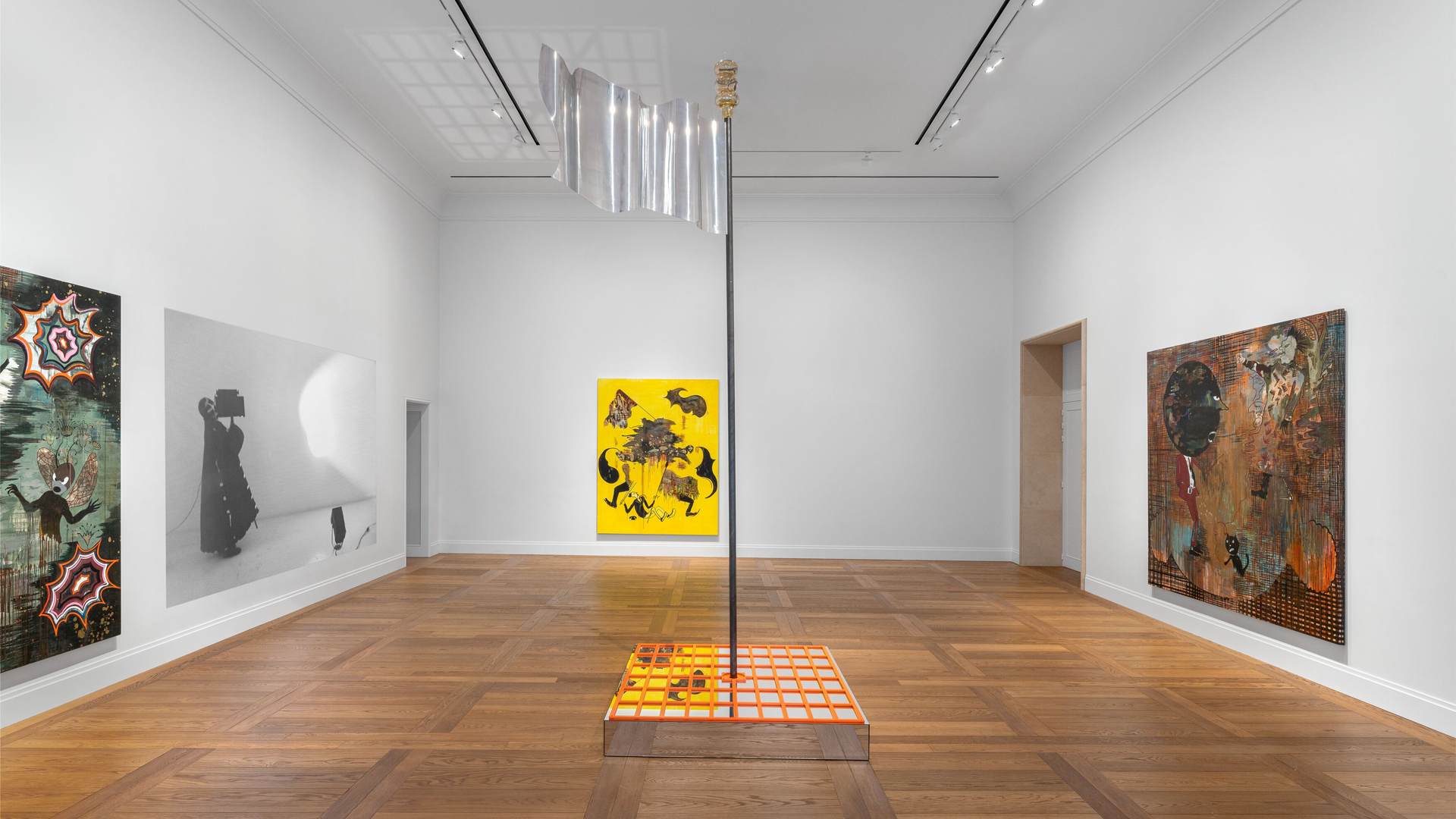
The figures in her recent works, whether animal or human, are suspended upon hazy, multi-coloured backgrounds, sometimes flecked with gold or intricate patterns or foregrounded by geometric gridding. They exist in dream-like compositions evocative of the way memories appear and dissolve and reconfigure with their own illogical logic. Mining her research archives, in the artist’s words ‘comme à la chasse,’ Delprat’s recent paintings are characterized by decontextualized images and texts; her seemingly nonsensical narratives induce viewers to draw their own conceptual associations and locate provocative parallels between her different works. Replete with paradoxes, ambiguities, humor and self-deprecation, Delprat’s artistic language is uniquely her own.
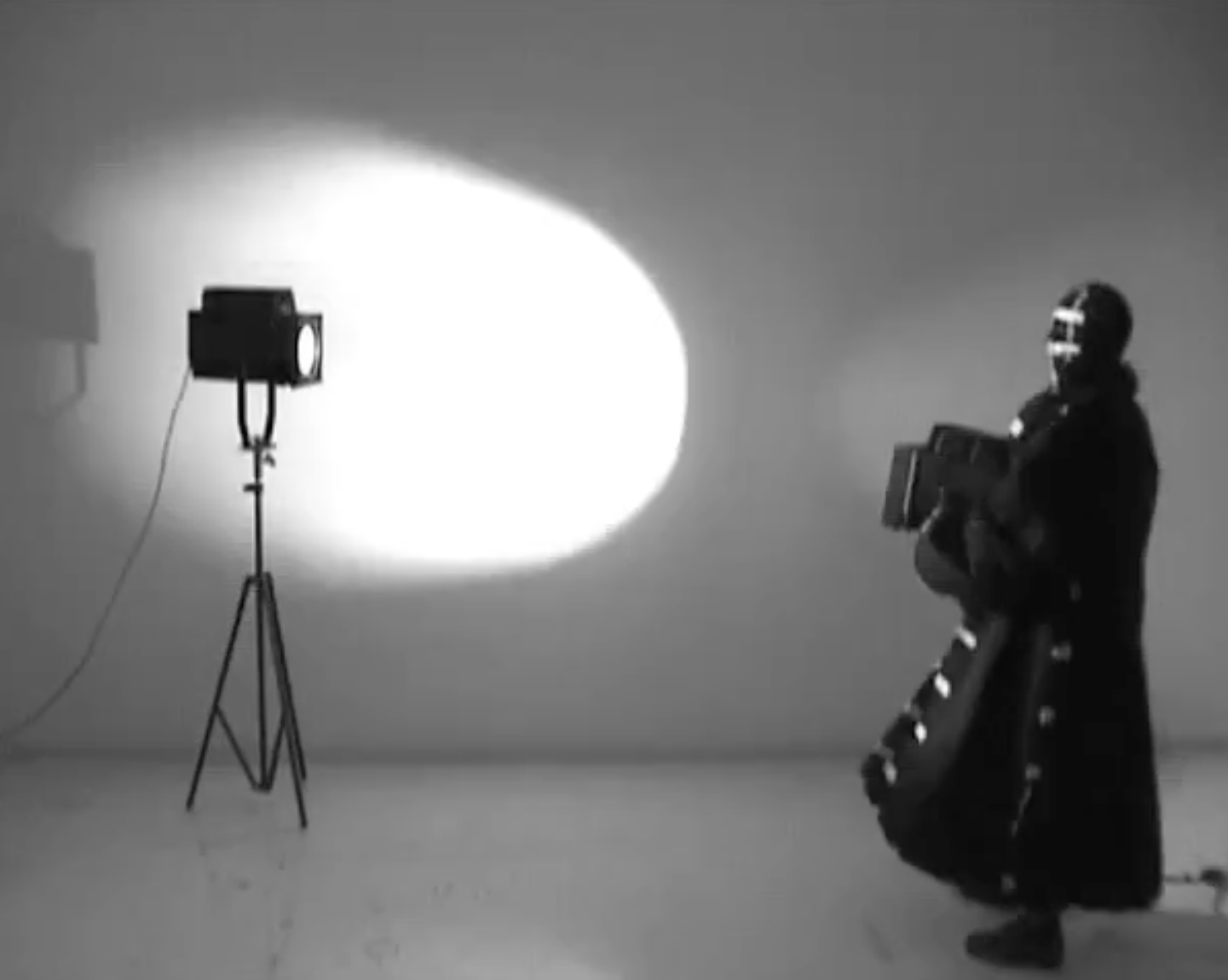
HAMMER SONG
2007
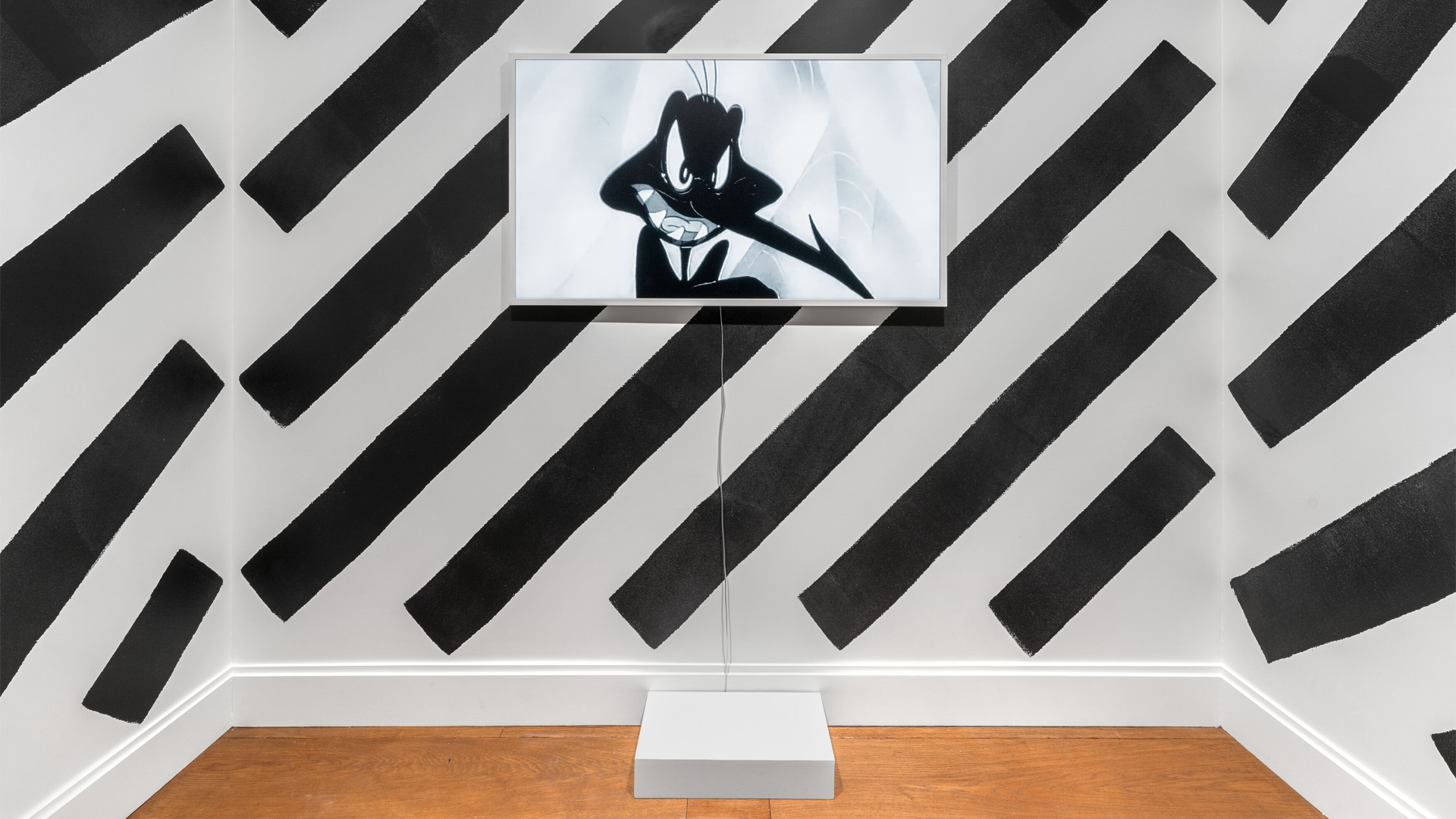
Delprat’s artistic output remains consistently rooted in her infinite curiosity for gathering information from the world before and around her. More recently, this approach is exemplified in filmic works such as ‘HAMMER SONG’ (2023), where the artist recreates scenes and imagery from films produced by Universal or Hammer. Executed in a DIY manner within her studio, the work forms a playful tribute to Z movies, playing on archetypical cinematic tropes such as lightning, flying saucers, storms, screams, monsters and giant spiders. As the artist says, ‘I like things that are rugged, in discord, a bit monstrous or extravagant.’
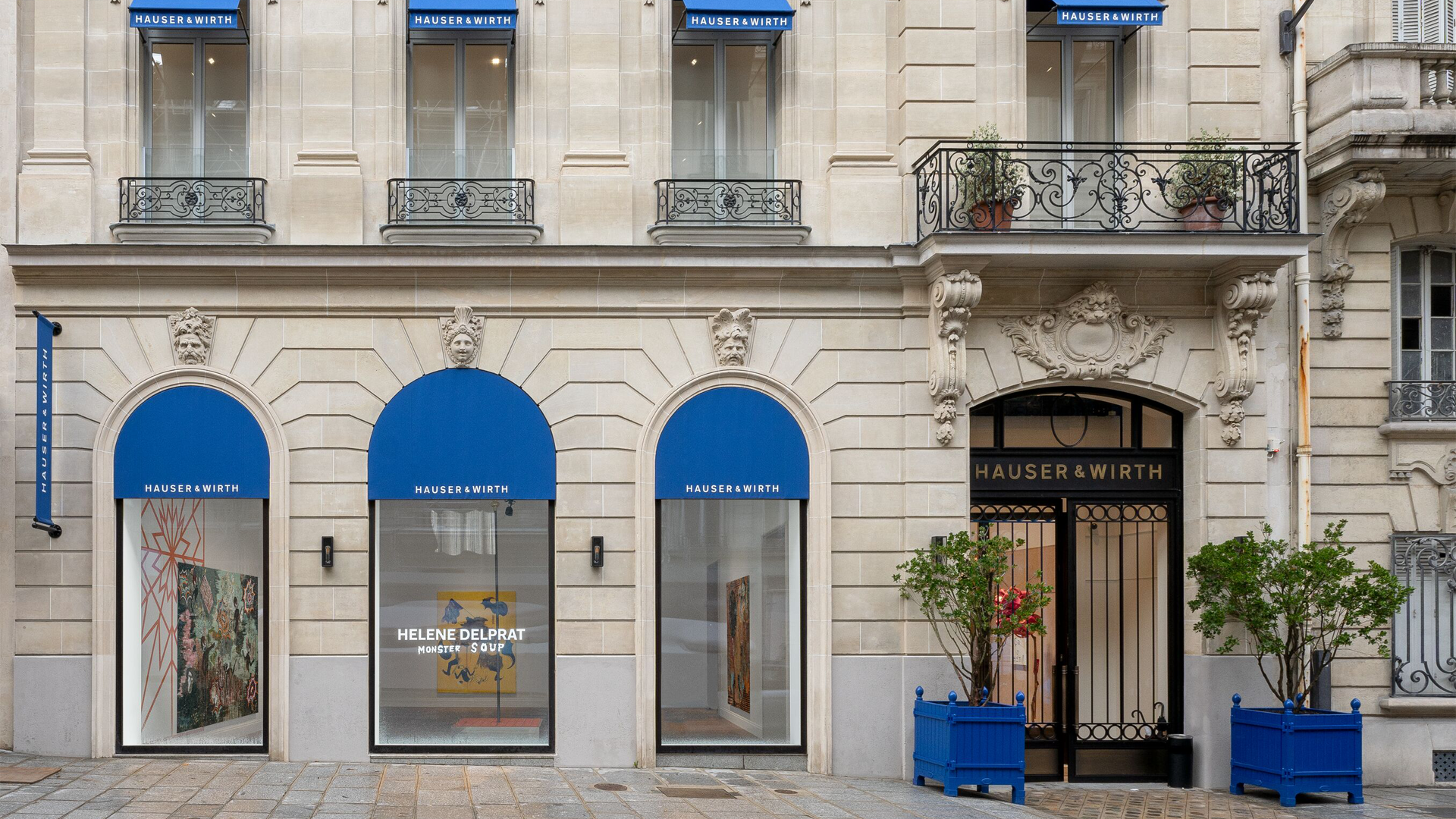
On view in Paris
The gallery is open Tue – Sat, 10 am – 6 pm. Please visit our location page to plan your visit.
About the Artist

Hélène Delprat
Over the past four decades, French artist Hélène Delprat’s multifaceted practice has engaged the human condition as its focus, exploring life and death in an oeuvre that includes painting, drawing, photography, sculpture, video, theater, interview projects and installations. Oscillating between fiction and documentary, humor and melancholy, Delprat’s works together comprise a sprawling constellation of references to literature, film, radio, philosophy, internet databases, recorded national histories and canonical art history. Likened to an iconologist, she distils eclectic sources of inspiration into a miraculous inventory—a world both fortuitous and deliberate, beautiful and grotesque, where themes of memory, identity, recording and legacy coalesce to remind us that the past is a construction and the present is fleeting.
Hélène Delprat (b. 1957) lives and works in Paris. She graduated from the École Nationale Supérieure des Beaux-Arts. Between 1982 and 1984, she was a resident of the prestigious Villa Medici in Rome, where she presented the anonymous exhibition ‘Jungles et Loups.’
Returning to Paris, Delprat exhibited with Galerie Maeght for ten years from 1985, coming to prominence with her totemic, primitive style of figuration, seen in such early works as ‘Meurtre réversible (recto)’ (1983) and ‘La transe des guerriers loups’ (1983). After giving up gallery representation in 1995, she declared herself an ‘ex-French painter’ in the early 2000s, creating small gouaches containing the words ‘Where is the painting? (WITP) It must be this Way’ or ‘Another failure, How not to paint by painting?’. These works would signal the beginning of a journey to explore everything that is not painting, without ever relinquishing her practice.
In the subsequent years, Delprat devoted herself to work in video, theatre, installations and creations for radio. Immersing herself in literary, filmic and documentary sources, the artist focused upon non-painterly mediums which reflected the plurality of forms her extensive research could take—a diversity that extended to her ‘Days’ blog, fake interviews and radio drawings. Video works such as ‘Les (fausses) conférences’ (2011) offer up an array references, from astronaut Buzz Aldrin to the Greek writer Lucian of Samosata, interspersed with self-conducted interviews. Less filmic is Delprat’s ‘W.O.R.K.S & D.A.Y.S’ (2005), a visual journal or, as the artist describes it, ‘a notebook,’ citing influences as broad as Ovid’s Metamorphoses and the writings of Pliny the Elder.
Delprat’s sojourns into the unknown via deep research would eventually inform her return to painting in the late 2000s. Her artistic output has remained rooted in her infinite curiosity and penchant for gathering information from the world before and around her: ‘Intellectually, I start from everything I see’ she says, ‘... there is no prep work, except all of this food, all this reading, all these curiosities, all the photos that I take.’ The figures in her recent paintings, whether animal or human, are suspended upon hazy, multi-colored backgrounds, sometimes flecked with gold or intricate patterns. They exist in dream-like compositions evocative of the way memories appear and dissolve and reconfigure with their own illogical logic.
Creating a space where fiction and documentary intermingle, Delprat’s multi-layered paintings are placed in an anachronistic framework. Her elusive characters and objects eschew context, resisting a single organized narrative. In paintings such as ‘Cymbalum Mundi-Pamphagus’ (2013), Delprat depicts Pamphagus, a dog from the 16th-century French text Cymbalum Mundi, as a well-groomed, contemporary French poodle. Other paintings take on a more ambivalent or disturbing aspect as Delprat addresses violent parts of human history. ‘Peinture ayant été détruite par Göring en 1937 et reconstituée en 2016’ (2016) summons tragedy and death through silhouettes of Nazi soldiers juxtaposed with floating cartoon faces that frown and smile. Similarly, the recent canvas ‘La décomposition de nos ennemis’ (2020) evokes images of war, a recurring theme in Delprat’s work and a metaphor for the act of painting as a battle against time.
In addition to Delprat’s first notable solo exhibition, ‘Jungles et Loups,’ at the Villa Medici in 1984, her work has been the subject of many solo exhibitions, including Galerie Christophe Gaillard, Paris (2014, 2017, 2020); La Maison Rouge, Paris (2017); Musée des Beaux Arts de Caen (2018); Kunsthalle Giessen, Germany (2020); Musée Marmottan Monet, Paris (2022); Museu Picasso, Barcelona (2023). In 2021, Delprat’s work was part of a group presentation ‘Sans titre’ from the Pinault Collection at the Punta Della Dogana in Venice, Italy. In 2021, the artist was commissioned to create the outdoor fountain ‘Marcello Dove Sei ???,’ at La Résidence – Le Tremblay, located in the town of Orgères, France.
In 2024, Delprat will take part in Biennale de Lyon.
Inquire about other available works by Hélène Delprat
Current Exhibitions
1 / 12
